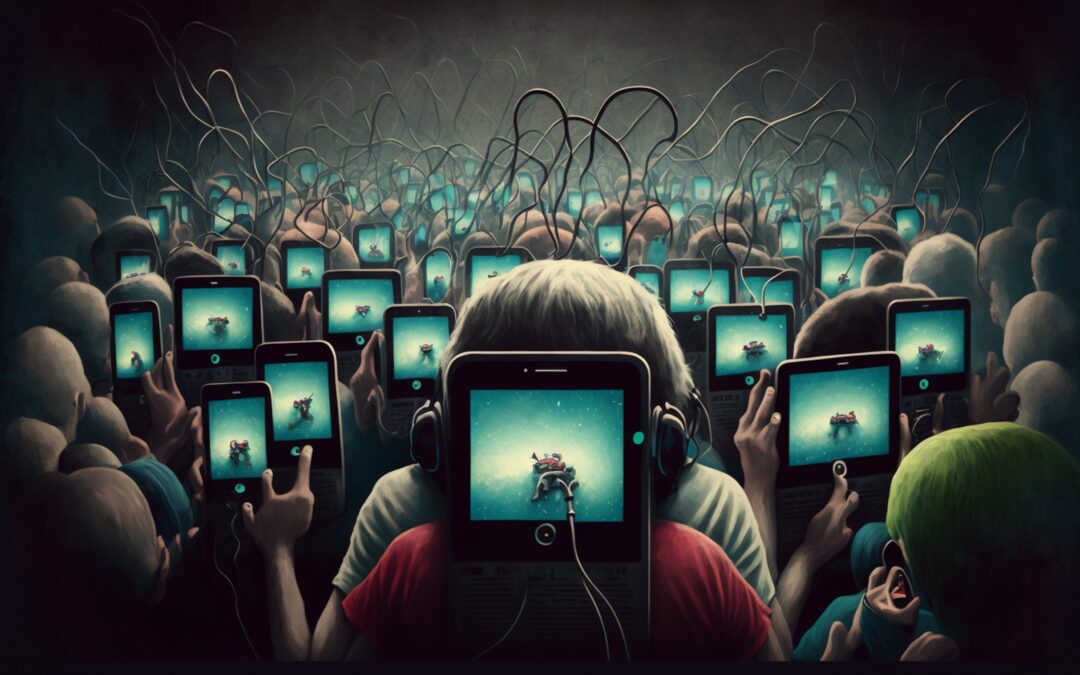Smartphone addiction has become a very real life issue these days. If you think about it, most of us carry our cell phones on or near us 24-7. Although there are benefits to having a phone accessible at all times, it is the excessive and compulsive use of smartphones that has become problematic, affecting daily life, relationships, and even work life negatively. There are even physical and psychological issues that are arising in wake of smartphone addiction.
WHAT ARE THE SIGNS OF SMARTPHONE ADDICTION?
Telltale signs of smartphone addiction include spending excessive time on the device, ignoring or neglecting important duties due to being engaged with the phone, ignoring or neglecting important relationships, always needing to have the phone nearby, and feeling anxiety, irritation or restlessness when not able to check or use the smartphone.
WHAT ARE THE EFFECTS OF SMARTPHONE ADDICTION ON MENTAL HEALTH?
There are a slew of issues associated with smartphone addiction and mental health, especially for the younger generation that is exposed to social media and experience bullying or other negative encounters. There is also an issue with people getting into comparison mode, where they fall into depression because they compare themselves or their lives to those they see when scrolling their feeds. Simply put, smartphone addiction can greatly impact mental health in the following ways:
- FOMO: The fear stricken culture we have – the fear of missing out, otherwise known as “FOMO” can cause people who are addicted to their smartphone to seek stimulation from it, leading to a feeling of being overwhelmed in the long run. These feelings and actions can further cause anxiety and even depression. Smartphones have been linked to poor sleep and social isolation which in turn can lead one into a state of depression.
- Sleep patterns: Melatonin is a naturally occurring sleep hormone produced by our bodies but the blue light radiated by smartphones can actually impede the production of the hormone. This in turn leads to a lack of sleep, further fueling mood disorders like depression.
- Smartphone addiction: For those suffering from smartphone addiction, they become reliant on their phone for their social life, entertainment, and can socially isolate themselves physically. This lack of true interaction can lead to loneliness, anxiety, and cause more depression. This addiction keeps people living in a false reality and not actually experiencing life fully.
TREATING SMARTPHONE ADDICTION
Treating smartphone addiction is easier said than done, especially in a world that is technology driven. For those struggling, setting up limits on their use of the phone and even calendaring no phone time can help. Even if it is only an hour, having phone-free time can help someone stay more engaged in the present moment. Another great way to start cleaning up your digital habits is to turn off notifications. You don’t need to check in on who posted or direct messaged you just because they did … you can set a time up to check your notifications and skip them interrupting your day. Limit and track screen time as well so you know how much you are using your phone, (some may not even know they have a problem with smartphone addiction until they see their usage), then scale down from there. Lastly, if you have a severe smartphone addiction problem that is causing mental health issues and beyond, talk to your healthcare providers or a therapist about how they can support you getting to a healthier state. Social support from friends and family can also help. Let them know you are taking a step back from phone usage and if they do not get a response from you right away, that is why. This can help those around you support your goals.
DOES SMARTPHONE ADDICTION LEAD TO OTHER ADDICTIONS?
Some studies have found that people who are addicted to their smartphones are more likely to develop addictions to other behaviors, such as online gaming or social media. One possible explanation for this is that people who are prone to addiction in general may be more likely to develop problematic smartphone use. Additionally, the constant stimulation and instant gratification provided by smartphones can create a feedback loop that reinforces addictive behavior.
However, it’s important to note that not everyone who uses their smartphone frequently will develop an addiction, and more research is needed to understand the complex relationship between smartphone use and other types of addiction.
If you’re concerned about your smartphone use or any other addictive behaviors, it’s a good idea to talk to a healthcare professional or mental health expert. Our team at Scottsdale Recovery and Detox Center® is committed to serving our community as well as those nationwide and provide a vast array of support services to our clients struggling with addiction.
We are a phone call away if you or a loved one are seeking support! Learn more by visiting scottsdalerecovery.com or call 1-888-NODRUGS.

